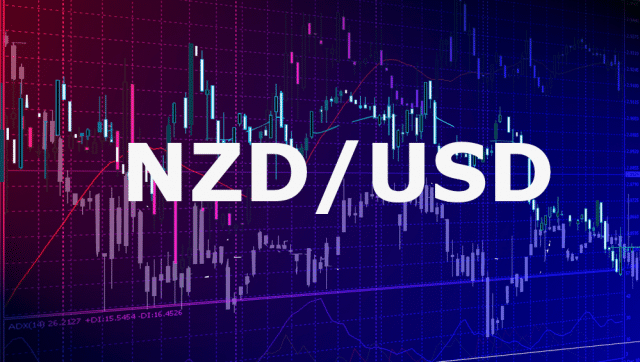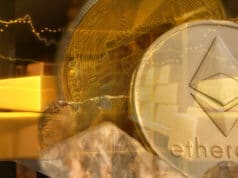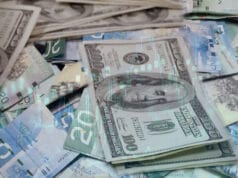- The New Zealand dollar is under pressure as the government moves to curb house prices rise and call RBNZ to action.
- Europe and China entangled in a fierce standoff in the wake of some European countries imposing sanctions on some officials.
- Gold and oil under pressure as the US dollar firms on rising yields and optimism about the US economic recovery.
During the Asian session on Tuesday, the US dollar held firm as the New Zealand dollar fell to three-month lows even on the government moving to curb further spikes in house prices. Risk sentiments appear to have edged higher in the wake of the Turkish lira collapsing on Monday as other majors also remained under pressure.
The New Zealand dollar sell-off to three-month lows against the dollar came as the government imposed curbs on the housing market. The government has also called the Reserve Bank of New Zealand to act adequately to stimulate the economy.
Amid the calls, the RBNZ is still some way off from hiking rates as such a move would result in a spike in borrowing costs, the last thing the economy needs. The central bank’s dovish stance has resulted in some outflows in the kiwi as the dollar continues to hold firm.
The NZD/USD pair is trending lower down by more than 1% since the start of the week and breaking key support levels lower.
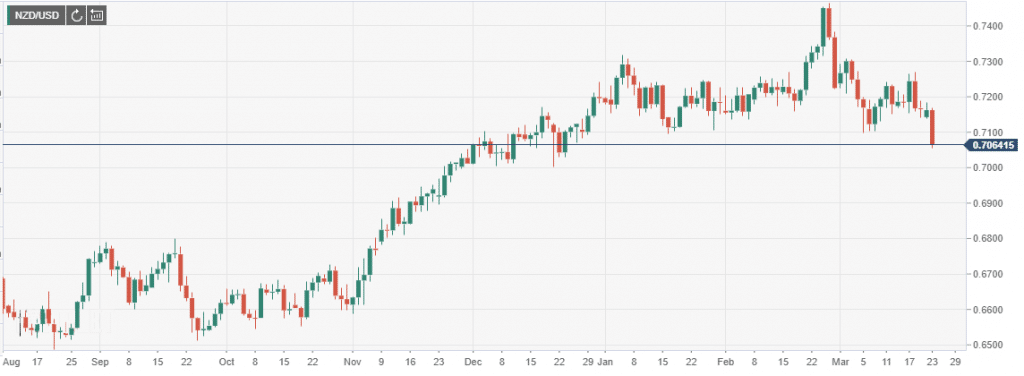
A breach of the 0.7096 support level leaves the pair susceptible to dropping further into three-month lows of 0.7000.
Yuan remains firm
The Chinese yuan continued to hold firm against the dollar despite China coming under pressure over its human rights record. Europe appears to be the latest battleground in the wake of several European countries imposing sanctions on a number of Chinese officials.
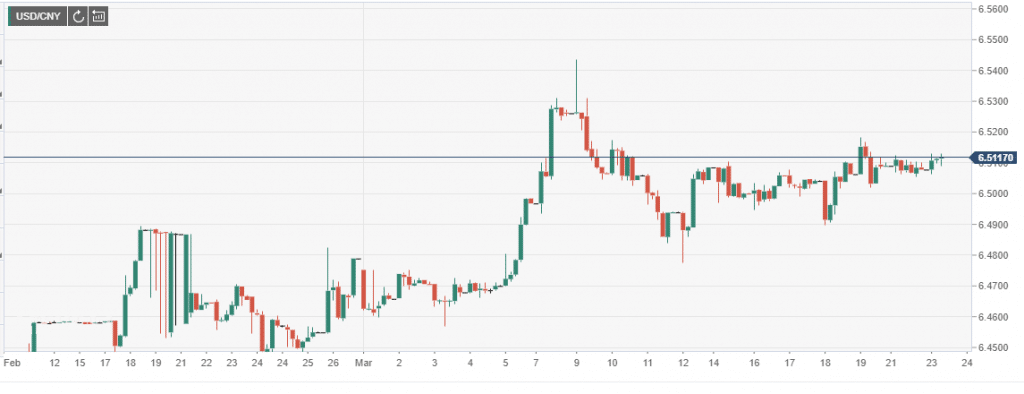
The sanctions target current and former officials and a paramilitary organization. The sanctions are in response to the mistreatment of the Uighurs Muslims in the northwestern Xinjiang region. The European sanctions come hot on the heels of a report indicating that the US is considering leading a multilateral coalition with the other South American nations in pushing back against China’s illegal fishing.
Germany lockdown
On the other hand, the euro remained under pressure as surging COVID-19 cases in some of the block’s biggest economies continued to arouse concerns. Germany is emerging as a hotspot in the region, has reported over 7,000 new cases and 250 deaths in the latest update.
Concerned by the new wave of infections, Chancellor Angela Merkel has extended the lockdown restriction until April 18. The extension comes on the Chancellor warning the country is battling a new pandemic. The lockdown continues to arouse concerns over its potential long-term economic impact. A slow vaccine rollout is not helping the situation.
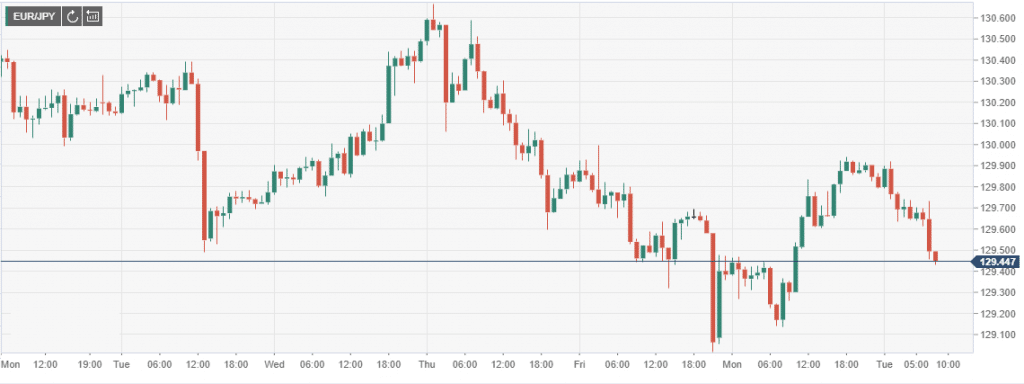
The EUR/JPY, which had been one of the best performing pairs amid the euro strength and the yen weakness, has started edging lower in the wake of Merkel’s re-imposition of lockdown measures.
Gold and oil weakness
In the commodity markets, the Gold rally from eight-month lows appears to be losing momentum. The yellow metal is experiencing strong resistance at the $1,740 level after being rejected at the $1,755 level late last week.
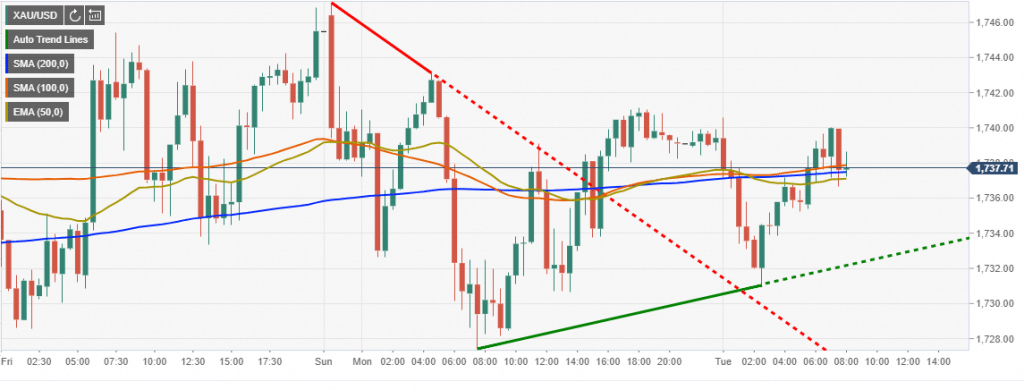
Further gains on the bullion have been limited by rising yields that continue to affirm the greenback’s strength. Failure to find support above the $1,740 handle could see the metal falling back to the $1720 level. Should the recovery gain momentum, the yellow metal could take out the $1,765 resistance level.
Oil is another commodity under pressure amid growing concerns of subdued demand. Surging European COVID-19 issues continue to rattle sentiments in the oil market amid growing concerns that demand could edge lower in the wake of Germany extending lockdown restrictions.
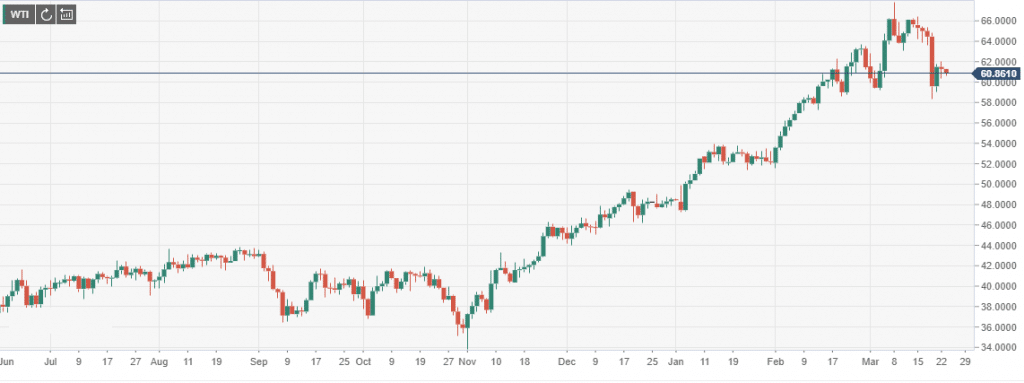
US West Texas Intermediate crude futures were down by 1% to $60.94 a barrel amid concerns that pandemic curbs and slow vaccine rollouts will hurt oil demand recovery. Germany being Europe’s biggest consumer of the commodity, continues to weigh heavily on sentiments following the extension of shopping and travel restrictions.
